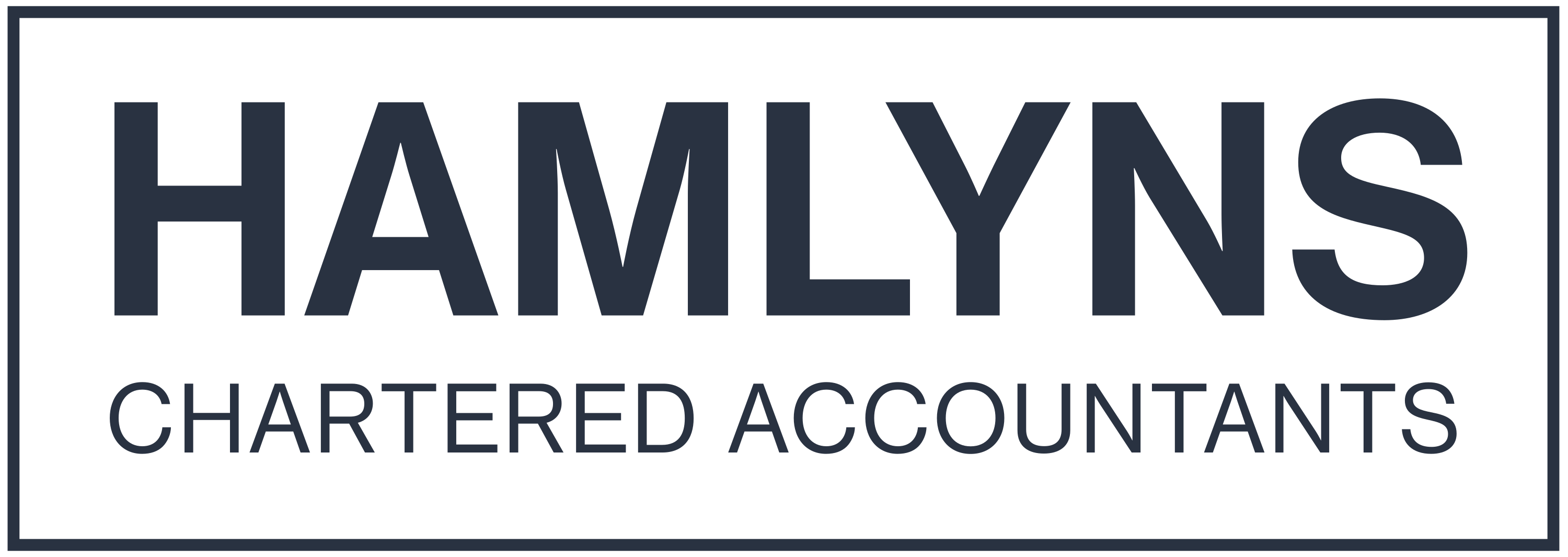How to Report and Pay CGT on Property Disposals

Understanding tax obligations on property sales can seem like an easy way to dampen any enthusiasm. This is no more evident than approaching Capital Gains Tax (CGT) on any UK property disposals, the times and methods of doing so is also highly confusing for some.
UK property disposals must be reported to HMRC even if you are not a UK resident and have no tax to pay on such disposals. Therefore, some readers may be questioning what information they can include on a disposal form.
That’s what this short guide looks to address. As seasoned tax advisors and Chartered Accountants dealing comprehensively with a wide range of complex property transactions, Hamlyns understands that Capital Gains Tax reporting and payment responsibilities can prove difficult to navigate.
Paying CGT on UK property sales requires the accurate calculation, declaration, and timely payment of tax, and failing to do so can incur financial penalties from HMRC. Fear not, because with our assistance, you can ensure full CGT transparency and compliance, while maximising your tax relief when disposing of any owned properties in the UK.
See the step-by-step guide below to help you report and pay CGT on UK property disposals.
Timescales for Reporting and Paying CGT
Taxpayers have 60 days to report and pay CGT when disposing of UK residential property. Property disposals must also be reported on an individual’s Self-Assessment tax return, if they qualify.
If you are a UK resident, joint property owner, trustee, personal representative, or a partner in an LLP, you must report and pay CGT within the 60-day timeframe. The 60-day CGT reporting and paying rules don’t apply to disposals of non-residential property or homes outside of the UK.
As for non-UK residents, the rules still apply even if there is no tax payable, if you have made a loss on the disposal, or are still registered for Self-Assessment.
Direct vs. Indirect Disposals
When it comes to property disposals, it’s important to distinguish between two distinct methods.
Direct disposals refer to situations when a person sells or disposes of their interest in UK property or land. The rate of Capital Gains Tax that would be payable will depend on whether the direct disposal is for residential or non-residential UK property or land.
Residential property in direct disposals would refer to buildings used as dwellings, properties that are being constructed for this purpose, gardens, or grounds of such buildings, or ‘off-plan’ acquisitions. Non-residential property would refer to commercial premises or agricultural land, as well as land that is not used for residency purposes.
Indirect disposals are different; these refer to situations when a non-resident individual sells or disposes of their interest in an asset that derives 75% or more of its gross value from UK land. The property categories remain the same, but an indirect disposal process would see an individual with at least a 25% interest in an asset for sale or disposal.
Calculating whether an individual has an investment of at least 25% can involve the inclusion of ‘connected persons’ (such as spouses or civil partners). If an individual sells units in an investment fund (that owns UK land), collective investment vehicle rules may apply, meaning that those owning less than 25% of such a fund may be liable for Capital Gains Tax.
What Disposals Fall Within the 60-Day Limit?
The 60-day time limit applies to direct disposals of residential property, such as if you sell or gift a property. The rules would not apply to indirect disposals, where, for example, you were disposing of shares in a company that was situated on UK land. In this instance, you would not need to pay within the 60-day timeframe, but you would still need to report and pay CGT due via your Self-Assessment form.
Here are some examples of when you would need to submit a 60-day CGT return:
- If you dispose of a property that you haven’t lived in
- If disposing of a property you’ve only partially lived in
- If selling a holiday home
- If putting a rental property up for sale
The 60-day reporting rules would not apply when there’s no CGT to pay on the disposal, for example:
- If any gains are covered by tax reliefs or exemptions such as private residence relief
- If gains are covered by brought-forward losses
- If the disposal is a ‘no loss, no gain’ transfer between spouses or civil partners
- If the property is sold at a loss or if the numbers balance
Therefore, if you’re only selling your primary residence, you would not likely be caught by the 60-day CGT reporting rules if you have lived in the property throughout your time in ownership.
How Are Disposals Reported and Paid to HMRC?
Any UK property disposal is reported to HMRC digitally through the ‘Capital Gains Tax on UK Property Account’ system.
Taxpayers can either report the disposal themselves or authorise a third-party tax advisor to report the disposal on their behalf.
In the rare instance when HMRC cannot accept a digital disposal report or payment, a bank transfer or cheque can suffice as payment.
To report the property disposal and pay the estimated CGT to HMRC, tax completions must be prepared within 60 days from the date of completion of the disposal, not the exchange of contracts. When calculating the estimated tax due, annual exemptions and allowable capital losses (arisen before the disposal) can be factored in. Tax computations cannot include capital losses arising later that tax year, but anticipated reliefs and brought-forward losses can be included.
However, most final tax positions will invariably be calculated following the submission of a taxpayer’s Self-Assessment return. This will consider additional factors such as losses realised after the property disposal that could not have been predicted in an original tax estimate.
Proactive CGT Tax Advice and Strategic Planning
Handling CGT accounting diligently during complex property transactions is vital to avoid tax penalties and to maintain compliance. If you’re thinking of selling or gifting residential property, it can be exceptionally reassuring to have a professional tax advisor and chartered accountant handling all CGT liabilities on your behalf.
Even if property disposals point to a loss, and when 60-day returns are not required, the peace of mind you can achieve knowing that an experienced team of transparent tax advisors has your back. Hamlyns offers specialist tax assistance and strategic planning, as well as estate and trust planning, with our team proving capable of making CGT projections and submitting tax reports, and everything in between.
Whether jointly selling inherited assets or looking to liquidate part of a rental property portfolio, engaging with the professional tax advisors at Hamlyns guarantees complete CGT compliance that also minimises your tax liabilities. Get in touch with our experts today to discuss your upcoming plans or for methodical guidance concerning previous disposal.





